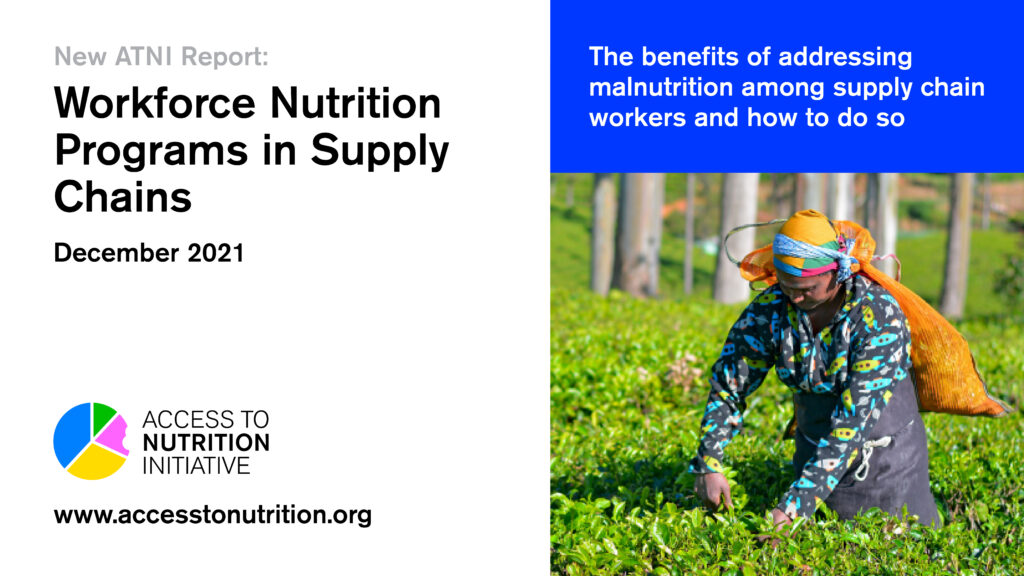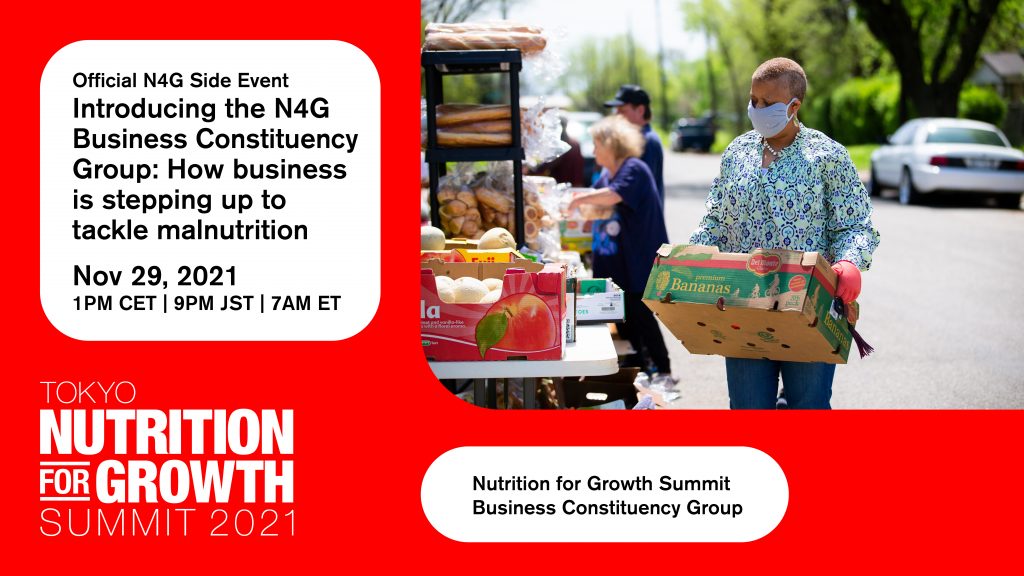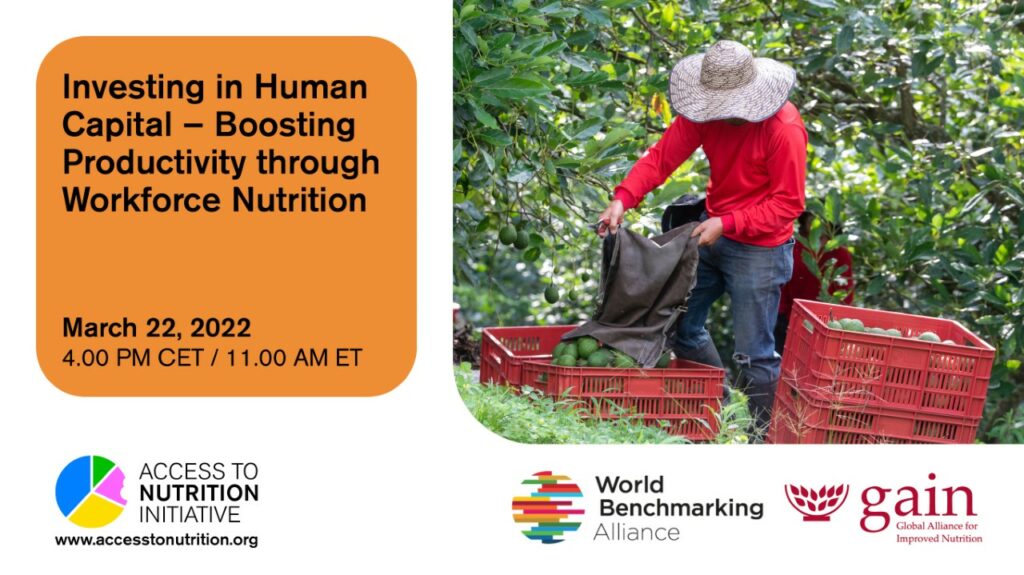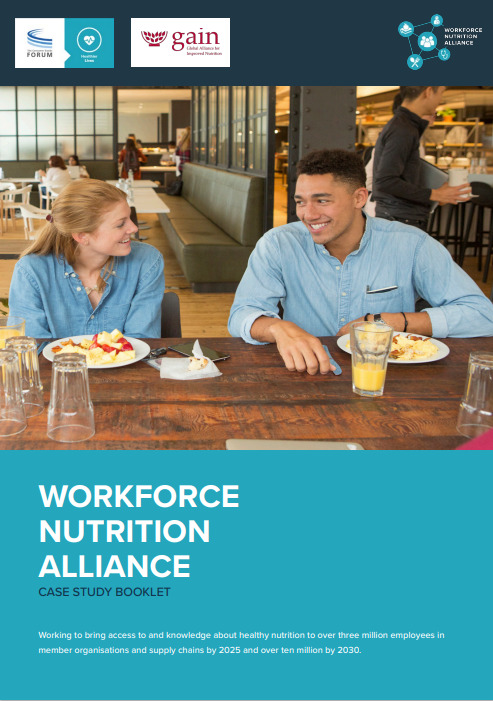
Building the business case for workforce nutrition – a timeline
14 June 202258 percent of the global population spend at least one-third of their adult lives at work – the workplace is therefore an effective point of intervention to protect human health through workforce nutrition programs. Workforce nutrition is also intrinsic to economic health, as malnutrition can lead to absenteeism and lower productivity rates.
As such, companies have an opportunity and responsibility to implement workforce nutrition programs to eliminate malnutrition amongst both their own workers, and those in their supply chains. Organizations such as ATNI, the World Business Council for Sustainable Development (WBCSD), World Benchmarking Alliance (WBA) and the Workforce Nutrition Alliance (WNA) which consists of a partnership between the Global Alliance for Improved Nutrition (GAIN) and the Consumer Goods Forum (CGF), have been building the business case for workforce nutrition.
In 2019, WBCSD published its report “Taking action on nutrition: Addressing the nutrition deficit in agricultural supply chains.” The report called on food and agricultural sector companies to play a role in addressing food insecurity and malnutrition in rural communities. It included recommendations for the food industry to enhance the accessibility and availability of nutritious food for the farmers that grow food. In the same year, GAIN and NewForesight also published a series of case studies on the business case for companies to invest in workforce nutrition in their supply chains.
Two years later, the Tokyo Nutrition for Growth (N4G) Summit 2021 brought to a head all actions and progress made for the N4G Year of Action. In the lead up to the Summit, ATNI and WNA co-hosted two side events on workforce nutrition. The first, titled “Leveraging the workplace to bring improved nutrition to millions of employees”, took a deep dive into WBA and ATNI findings and case studies on companies’ workforce nutrition efforts. The second – “Private sector commitments on workforce nutrition in supply chains” – brought nutrition experts together to share experiences on workforce nutrition in supply chains, and presented new data from an ATNI report and case studies. The recordings of both events can be accessed here.

Following the second N4G side event, ATNI published our report on Workforce Nutrition in Supply Chains. The report discussed the benefits of workforce nutrition programs in companies’ supply chains, and provided lessons learned on implementing them, based on findings from six company case studies (Nature’s Pride, Twinings, Nestlé, Unilever, Olam and VF Corporation). These were released alongside the report.
During the N4G Summit, the Business Constituency Group (BCG) – WBCSD, The Consumer Goods Forum, International Food and Beverage Alliance, Food Industry Asia, and Nutrition Japan Public Private Platform, supported by the Global Alliance for Improved Nutrition and the Access to Nutrition Initiative – launched a call to action for businesses to step up for nutrition. The BCG called on all business leaders to sign the Responsible Business Pledge for Better Nutrition and join the Workforce Nutrition Alliance.


In March 2022, ATNI and WNA co-hosted an investor event, titled “Investing in Human Capital: Boosting Productivity through Workforce Nutrition”. The event’s purpose was to provide investors with the business case for investing in workforce nutrition as a means of improving human capital. Read more on how investors can leverage their influence to drive positive change within companies towards introducing workforce nutrition programs to mitigate these effects on productivity.
Recently, WNA released a new Case Study Booklet, which outlines case studies of workforce nutrition programs across 11 companies. The companies represented in the Booklet are those that pledged to support workforce nutrition as part of the N4G commitment-making process. They include Ajinomoto, Eat Well Global, Google, Griffith Foods, Indofood, Kao, OFI, Olam, Quorn Foods, Royal DSM and Unilever.
The new publication calls on other organizations to join the movement for developing and implementing workforce nutrition programs. All organizations and companies have a responsibility to support the health and nutrition of their employees – including those that they employ directly and indirectly.
ATNI seconds WNA’s call to action, so that the impact of workforce nutrition programs can continue to drive progress towards eliminating malnutrition amongst direct employees and supply chain workforces around the world.


